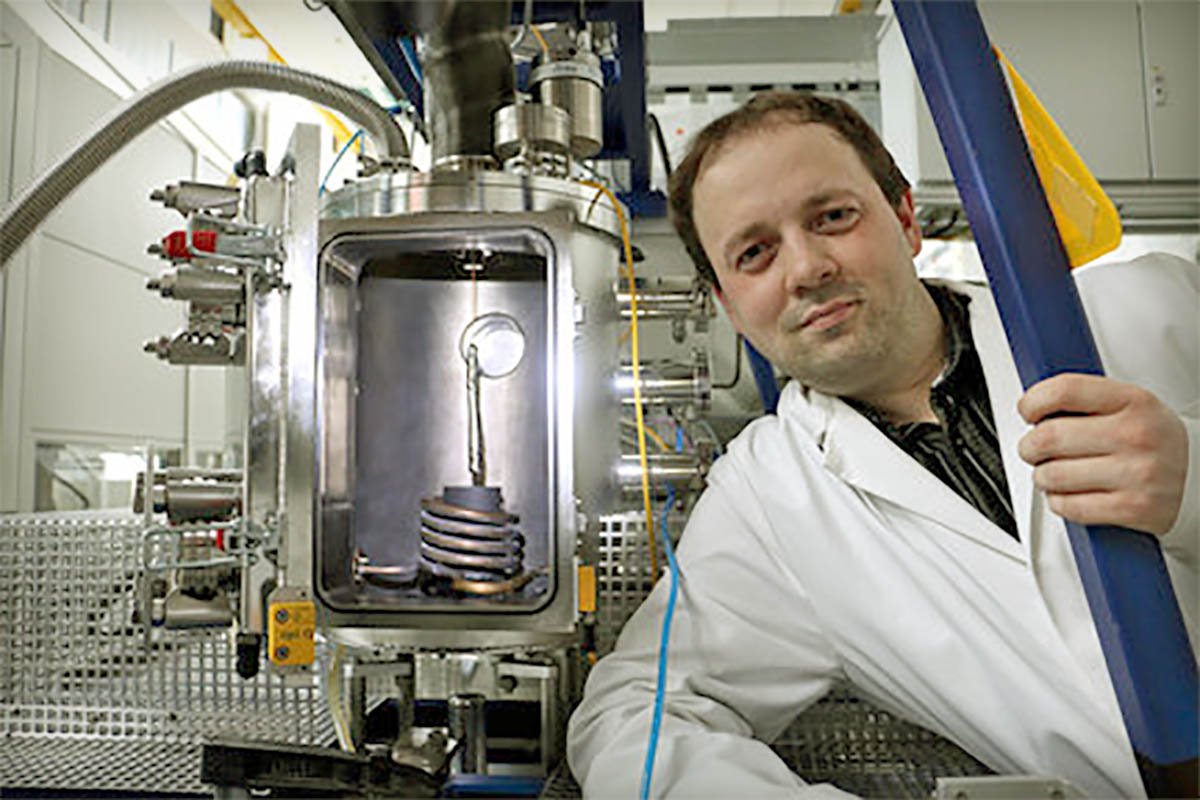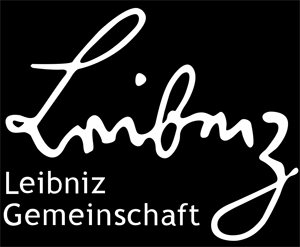Within the scope of an ERC Starting Grant, Dr. Kaspars Dadzis of the Leibniz-Institut für Kristallzüchtung (IKZ) is reviving the original crystal growth experiment, introduced over a hundred years ago by the chemist Jan Czochralski. The goal of his project NEMOCRYS (Next Generation Multiphysical Models for Crystal Growth Processes) is to describe the fundamental physics behind this process and to develop new, reliable models for crystal growth. We talked with Kaspars about his passion for fundamental physics and unique opportunities that ERC Starting Grant offers to a junior researcher.
When was your first contact with the subject of crystal growth, and why did it attract you?
It was already in the second year of my bachelor studies at the University of Latvia in Riga. Professor Andris Muižnieks, who was reading lectures in electromagnetism, mentioned an opportunity for students to work in applied physics in his group. I started with simple programming tasks for modeling of silicon crystal growth and then did my bachelor and masters theses on this topic. I got interested as a physicist because crystal growth has all these physical topics, which you learn in your studies: hydrodynamics, thermodynamics, continuum mechanics. I saw that I could apply in practice all the things that I learned in theoretical studies. That was fascinating! I still find it fascinating: in the ERC project, as a physicist, I am focusing on the multi-physical aspect of crystal growth.
You did your PhD in the SolarWorld company in Freiberg, where you subsequently stayed for four years. Why did you decide to leave the industry and go back to do academic research at the IKZ?
When you work in the industry, you are focused on optimizing some specific properties of the end product, in this case, solar cells. There are quite limited resources to pursue scientific topics. SolarWorld was great in this sense, it gave me a lot of freedom: I could do large projects with universities about model experiments. Still, at some point, I saw that if I want to go deeper into science, I cannot do this in industry. Because the goals – and the resources, which you get to pursue those goals – are still focused on the product you need to sell.
How does your new role as a junior research group leader differ from your previous position? What challenges does it bring?
I have more responsibility now. It is my responsibility to find people for the project: I need to organize interviews, ask the right questions, and pick the right people. It is also my responsibility to plan all the research work. In Freiberg, it was different: the company had specific goals, and everyone knew what he has to do tomorrow. Here at the IKZ, in this new project, it is all up to me and if I fail, the project fails. I need to deal with many different people and make many important decisions, which are not related to science. This is all new to me. IKZ Director Professor Thomas Schröder offers great support: he gave me many useful hints about financial issues or how to select new employees and find collaboration partners.
What opportunities does the ERC Starting Grant offer to you as a junior scientist?
An ERC Grant gives a lot of visibility. If you are building a group based on an ERC project, it is quite a high level. It also helps to get your topic recognized. The subject of model experiments is not yet well established for crystal growth, there are different opinions about it, and I need to give convincing answers to many questions. The fact that high-level experts at the ERC supported my proposal provides the opportunity to establish this topic not just at the IKZ, but also on a larger scale in Germany and internationally.
More about Dr. Kaspars Dadzis NEMOCRYS project in the Verbundjournal 114/2020 (pp. 46-47).
The interview was conducted by Natalia Stolyarchuk (Forschungsverbund Berlin e.V.).


